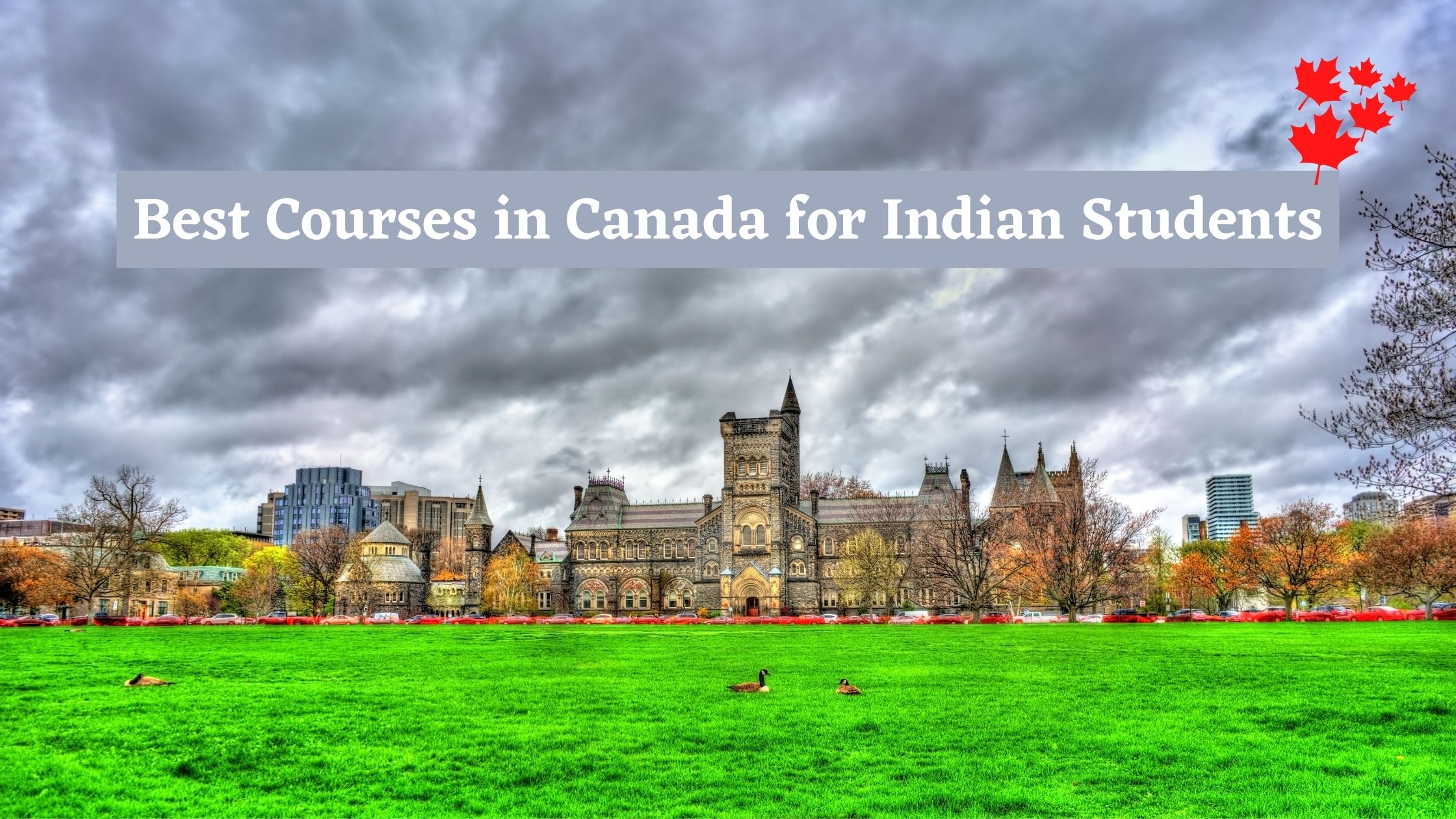Courses in Canada: In Canada, one will encounter a multitude of international students in every city. Amidst that crowd, one will recognize many Indian faces. With its range of landscapes, ice fields, green vegetation, massive mountains, and glacial peaks, there is a lengthy list of scenic wonders of Canada for students to sightsee while studying in the country.
The Education System of the Country:
With little influence from Britain, the higher education system in Canada is not very different from the education system present in America.
There are mainly three types of institutions in Canada:
- Public Universities: Public universities in Canada are run on the funding made by provincial, federal or territorial governments besides receiving the tuition fees from students.
- Private Universities: Private universities in Canada are funded mainly by research and donations grants. These universities do not get any funding from government bodies.
- Liberal Arts Colleges: Liberal arts colleges in Canada are pretty comparable to those in the USA. These are both public or private colleges, with a principal emphasis on undergraduate courses in liberal arts.
Study Options:
At most institutions in Canada, there are three academic intakes: winter, summer, and fall. Winter lasts from January to April, and summer lasts from May to August, and fall lasts from September to December. Though fall is considered the primary intake in most colleges, some colleges offer a winter intake.
The deadline would be 6 to 9 months for a typical application before the session starts and depending on each department and the subject of choice, it can vary. Though deadlines are non-flexible, some institutions might accept few students if seats are available except for diploma programs. So, international students are recommended to apply at the earliest, as admissions and scholarships get more and more competitive closer to the deadline.
There several study programs available for students to choose from–
- Undergraduate (course duration: three or four years)
- Postgraduate (course duration: two years)
- Certificate or diploma (course duration: one or two years)
- Advanced diploma (course duration: two or three years)
- Ph.D. (course duration: four or five years with dissertation)
Canadian universities offer various undergraduate and post-graduate level programs for international students in multiple streams.
The top five undergraduate courses in Canada are mentioned below:
- Engineering
- Pharmacy technician
- Hospitality management
- Information technology
- Business management
Some popular courses are administrative studies and engineering at the undergraduate level, and at the post-graduate level are management, finance, LLB degrees, and MBA/MIM, MS.

Scholarships Available for Students in Canada:
Universities in Canada also offer scholarships to study in Canada for deserving students who cannot fund their education.
Here is a list of scholarships that one can apply to for studying in Canada:
- Humber College International Entrance Scholarship
- Waterloo Merit Scholarship
- UBC International Leader of Tomorrow Award
- Science and Law School Scholarship
- Vanier Canada Graduate Scholarships
- Ontario Trillium Scholarship
- Ontario Graduate Scholarship
- Go Clean Scholarship
- Quebec Provincial Government Scholarship
- University of Manitoba Graduate Fellowships
The Eligibility Criteria for these UG Courses in Canada:
Students with good academics, fulfilling IELTS and financial requirements, no (or few) backlogs, and with no study, gap stand higher chances of Visa approval.
One must have attained at least 50% marks in the 12th standard with average IELTS scores minimum of six bands overall in any module to be eligible for undergraduate programs in Canada.
Cost of Studying in Canada:
Compared with other leading study destinations, the price tag for higher studies in Canada is roughly half. Tuition fees differ from institution to institution. On average, students studying in Canada will have to shell out CAD 10,000–40,000 per year, and for their accommodation, on average, students pay CAD 6,000–8,000 per year. Of course, the other expenses and transport should be factored in. Health insurance one more thing that a student can’t avoid, which costs CAD 600 (approx.) per year.
International students post their studies can apply for a work permit, which allows them to pull into the country for three years.
Benefits of studying in Canada:
One will have several options to choose from small-town or city universities and big or small universities.
In this beautiful country, students can enjoy a varied and active lifestyle and great health-care benefits and politeness of the locals, which is the most known thing about Canada.
Students will have incredible opportunities to meet like-minded people through student clubs and organizations and gain valuable international student experience.

